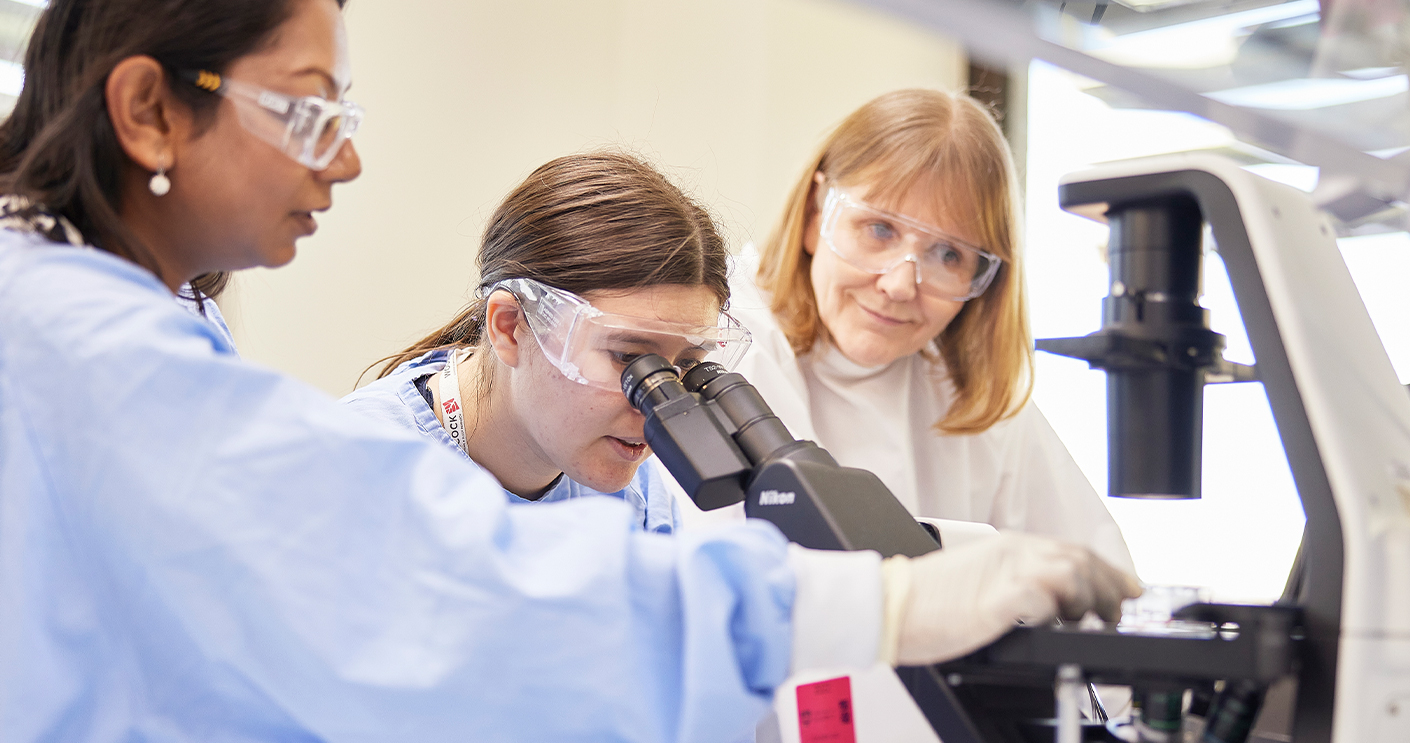Research scientists are learning more every day about how we can use the amazing resource that is the human microbiome to boost the effect of cancer therapies. That’s great news for the thousands of people affected by lung cancer.
November is Lung Cancer Awareness Month, a time to remember the 9000 Australian smokers and non-smokers who die from lung cancer every year and to refocus our efforts on finding a cure.
The Woolcock Centre for Lung Cancer Research is a world-class research centre with biobanking facilities, linked to a network of global experts in the field. Researchers at the centre are continuously looking to find ways to develop innovative treatments that save lives.
Established in 2018 and led by Macquarie’s Professor Maija Kohonen-Corish, the centre is currently developing microbiome-based tests that identify a subset of lung cancer patients who would benefit from microbiome-correcting treatments to improve therapy outcomes.
Microbiomes are naturally occurring ecosystems that live in our body and include bacteria, fungi, viruses and their genes. They are vital to human health and wellness.
“Having a healthy gut microbiome is essential for some lung cancer therapies to work in the best possible way,” says Professor Kohonen-Corish. “The gut-lung axis is a term used to describe the bidirectional communication between the gut and the lungs and if this is ‘broken’ it leads to weakened immunity and a weakened response to immunotherapy.”
The focus of her research now is to identify patients whose gut-lung axis is ‘broken’ and find ways to repair it before embarking on cancer therapies.
“Microbiome research is real breakthrough science with enormous potential,” she says.
“And every breakthrough brings us closer to a world where lung cancer is conquered, and lives are saved.”
This story was first published on the Woolcock Institute of Medical Research website.


 Back to homepage
Back to homepage
Comments
We encourage active and constructive debate through our comments section, but please remain respectful. Your first and last name will be published alongside your comment.
Comments will not be pre-moderated but any comments deemed to be offensive, obscene, intimidating, discriminatory or defamatory will be removed and further action may be taken where such conduct breaches University policy or standards. Please keep in mind that This Week is a public site and comments should not contain information that is confidential or commercial in confidence.